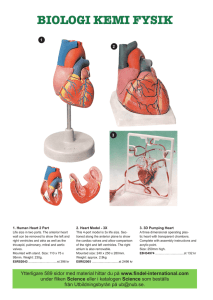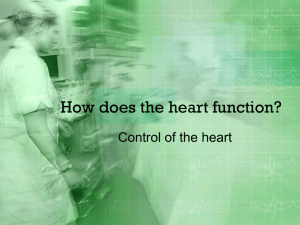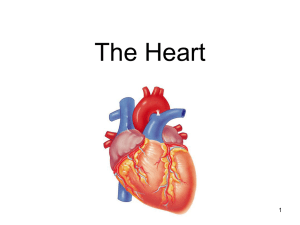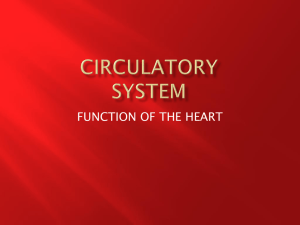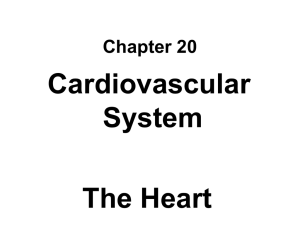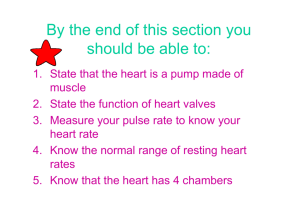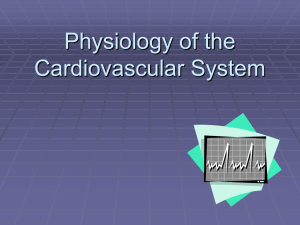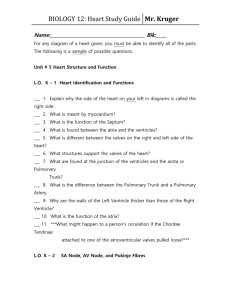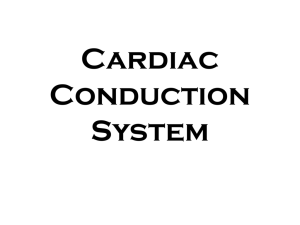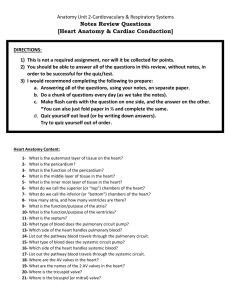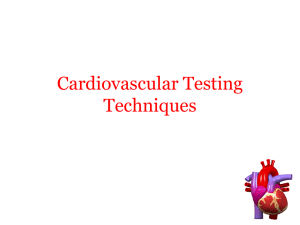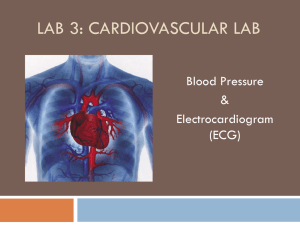EKG
advertisement
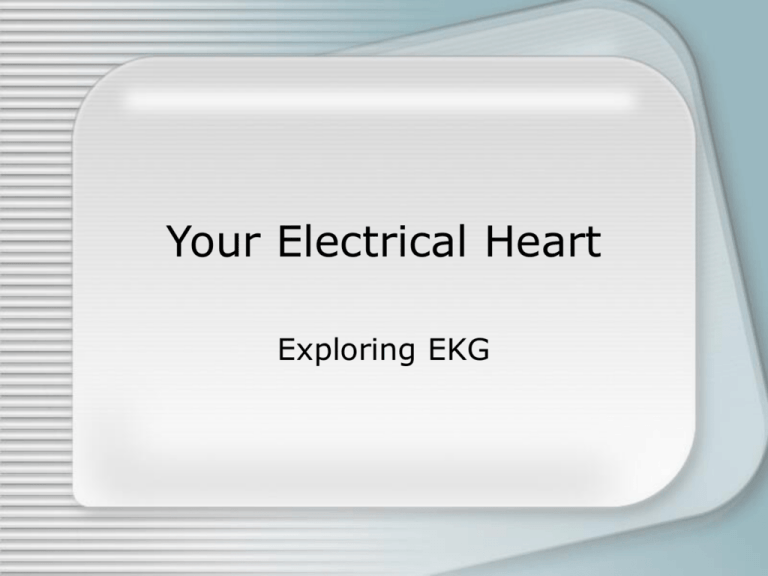
Your Electrical Heart Exploring EKG Objectives • Find and interpret patterns on an EKG graph • Describe the electrical and mechanical components of a normal heart rhythm • Draw appropriate conclusions about the mechanics of various normal and abnormal heart functions based on EKG Introduction • When have you heard the terms “Vtac”, “V-fib”, “asystole”? Depiction of electrical • What is an EKG or ECG? activity in the heart • What do you think a normal graph of the heart’s electrical activity looks like? (draw it) • Why do doctors and nurses need EKGs? Detect & diagnose problems with the patient’s heart rhythm Review and new terms • Left & right atria: receive blood from the veins, pump it into ventricles • Left & right ventricles: receive blood from atria, pump it out into arteries • Sinoatrial (SA) node: bundle of nerves in R atrium, the heart’s pacemaker, stims contraction of atria • Atrioventricular (AV) node: between atria & ventricles, continues rhythm set by SA node, stims contraction of ventricles • Purkinje fibers: fan out and stimulate contraction of ventricles Review: the cardiac cycle • How blood moves through the heart 1.Blood enters atria>>pressure in A rises>>AV valves open 2.Blood enters ventricles>>pressure in V rises>>AV valves close>>semilunar valves open>>blood leaves heart 3.Pressure in V falls>>S/L valves close 1. 2. 3. 4. 5. 6. To Do and Notice Look at your EKG strip. Determine the patient’s heart rate in BPM if this is a 6 second rhythm strip. Is the rhythm consistent? (describe) How is your strip similar to a normal EKG? How is it different? Based on what you know about the cardiac cycle, try to explain what is going wrong with this heart. Present your patient to the class. What’s Going On? • What terms and conditions do we learn from the EKGs?
